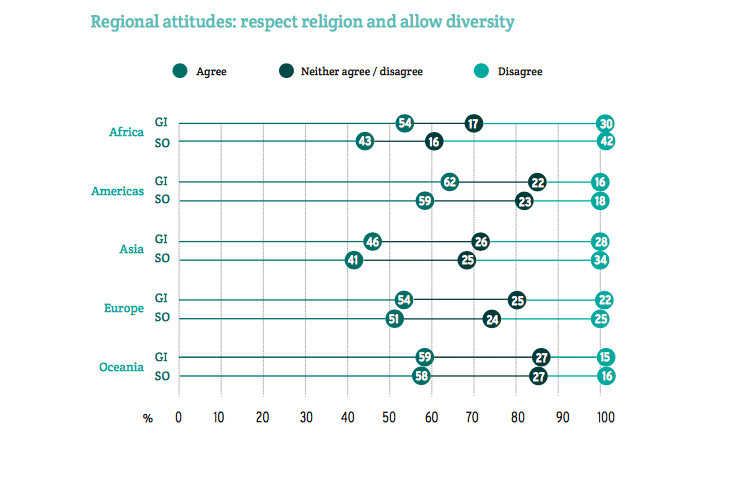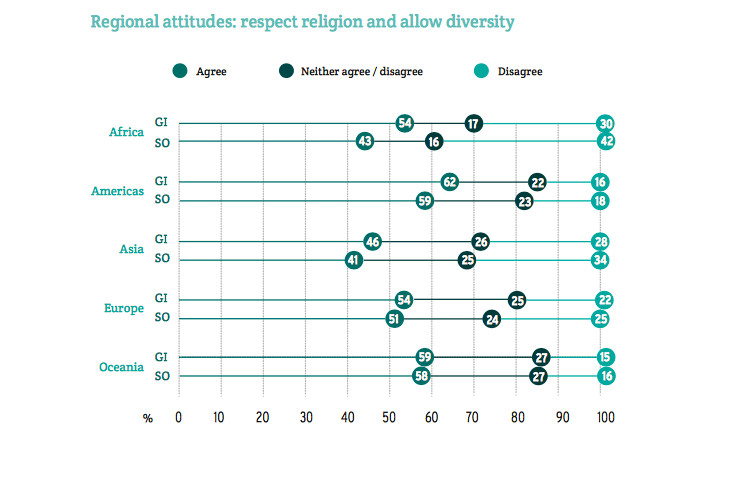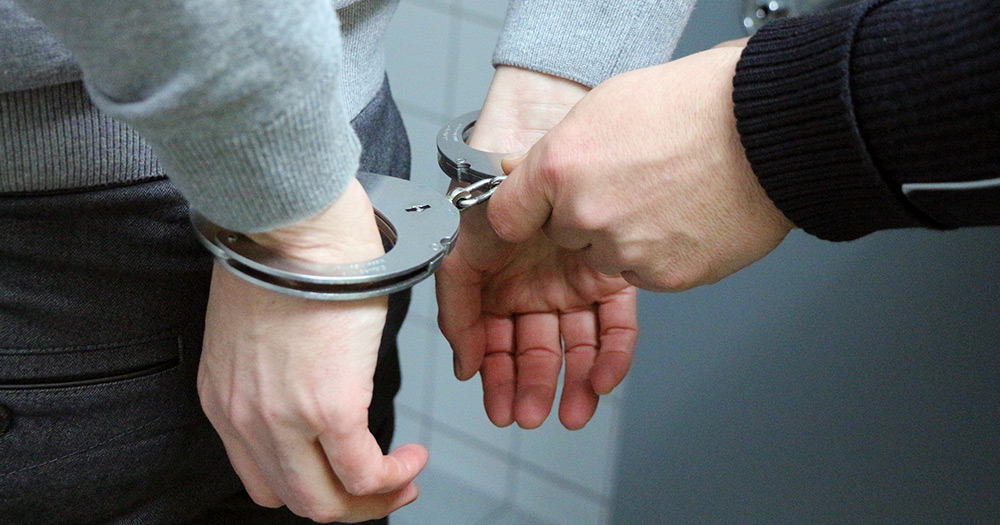A new survey of 77 countries and territories reveals that more than one in four people think that people in same-sex relationships should be charged as criminals.
The 2017 Ilga-Riwi global attitudes survey to sexual and gender minorities found startling divisions in attitudes across international borders.

For example, almost half of respondents (45%) across 15 African countries said that people in same-sex relationships should face criminal sanctions.
Elsewhere, Irish responses to the survey were far more positive with respect to same-sex relationships.
To the statement ‘equal rights and protections should be applied to everyone including people who are romantically or sexually attracted to people of the same sex’, 61% (654) Irish respondents ‘strongly’ agree. Ten percent (124) said they ‘somewhat agree’, and 19% said they neither agree nor disagree.
Four percent (56) responded that they ‘somewhat disagree’, with 6% (82) saying they ‘strongly disagree’ that equal rights and protections should be applied to everyone including people who are romantically or sexually attracted to people of the same sex.
In response to the statement ‘people who engage in romantic or sexual relationships with people of the same sex should be charged as criminals’, 11% (126) responded that they ‘strongly agree’, with 7% (79) saying they ‘somewhat agree’. Fifty-eight percent (610) said that they ‘strongly disagree’.
In the UK, which this year celebrated 50 years since decriminalisation, one in six people (17%) ‘strongly agree’ that people who engage in romantic or sexual relationships with people of the same sex should be charged as criminals.
The survey also attempted to assess attitudes towards same-sex people within the context of religious belief. The findings appear to demonstrate that a majority of people feel they can respect their religion and their culture and be accepting of sexual and gender diversity.

Globally, 48% of respondents in the broader survey said they could respect their religion while being accepting of “people who are romantically or sexually attracted to people of the same sex”, compared with 30% who felt the two were incompatible.
The survey also shows that respondents who know someone who is gay or bisexual or identifies as another gender are much more likely to support their equal rights and protections.
“At the global level, 41% of respondents know someone who is romantically attracted to people of the same sex, and 35% of respondents directly know someone who dresses, acts or identifies as another sex than the one they were born,” said Aengus Carroll, co-author of the research.
On worldwide average, 55% agreed that equal rights and protections should apply to gay and bisexual people, while 59% said the same of those who are trans or gender-diverse, reports The Guardian. This figure rose to 73% among people who knew a gay or trans person.
“We interpret what we are seeing in this data as suggesting that when people know each other first-hand, a de-stigmatising effect can be produced, and that counters the stereotyping too often perpetuated by religious and political leaders, as well as in media.”
“A consistent message from these data is that knowing someone in these communities has significant positive effect on attitudes towards them,” added Carroll.
A full break down of the ILGA/ RIWA survey is available online.
© 2017 GCN (Gay Community News). All rights reserved.
